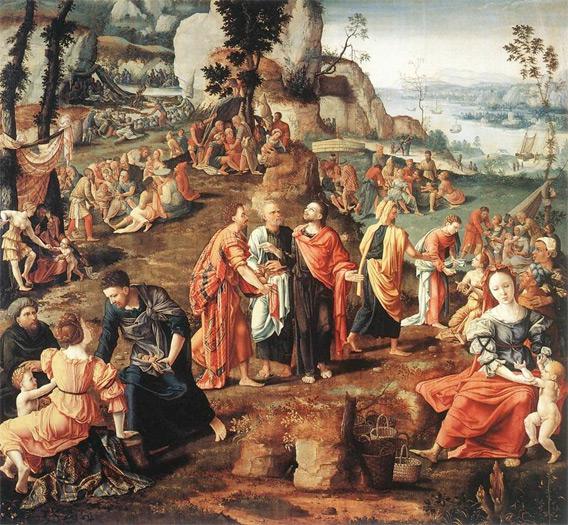I’m having a little bit of trouble discerning what exactly Caleb Crain and I are disagreeing about. He seems to think I’m mistaken about copyright policy, but he doesn’t quite specify what the nature of the disagreement is. He clearly finds me distasteful, and thus finds it pleasurable to muse on the possibility that he might steal my lunch (or reduce my salary to $0). But after considering these possibilities at length, he concedes—as I wrote earlier this month—that copying is in fact not stealing.
He seems to pass over this point lightly, but it’s worth dwelling on. Someone might break into my house and steal some homemade tomato sauce from my freezer. It would be another thing entirely for Crain to miraculously duplicate the sauce, causing the world’s total stock of tomato sauce to increase. In an intermediate case, Crain might simply copy down the ingredients (I follow Mario Batali’s recipe but add some crushed red pepper) and cook his own sauce. Copyright law does not deem it illegal to imitate someone else’s recipe, and nobody seems to regard doing so as morally problematic. Crain cites Immanuel Kant on the moral rights of the author, but this seems to me to relate to plagiarism rather than copying. For me to imitate Batali’s recipes and pass them off as my own would be unsporting in the extreme (though not, I think, illegal), and self-respecting people don’t do such things.
So far we are in agreement, then. Crain thinks he shouldn’t steal my sauce. I agree. He thinks he shouldn’t pass my recipe off as his own invention, and I agree. But suppose he duplicated the sauce and used it to feed the poor—is that so wrong? When Christ performs the miracle of the loaves and fishes do we condemn him for depriving fishmongers of hypothetical income? I say that the man who learns to conjure pasta sauce out of thin air will be one of humanity’s greatest benefactors, even if he drives the Olive Garden out of business.
Of course we don’t have such a conjurer. The good news, however, is that grocers and restaurateurs participate in a competitive environment. To return to another point where—Crain’s protestations aside—we appear to agree, what copyright does is provide a monopoly on sales of a product to the copyright holder. Monopolists, in their quest to maximize profits, behave differently from participants in competitive markets and set prices well above marginal production costs. This creates deadweight loss. There are customers who would derive some non-zero benefit from using the product, but the benefit would be smaller than the profit-maximizing sale price. To the extent that unauthorized copying helps such people get their hands on works, so-called “piracy” is socially beneficial. This is all I’m claiming, and I think it should be an uncontroversial point. Given that it costs nothing to distribute an additional copy of a digital file, the socially optimal quantity of illicit copying is not zero, just as it would not be a boon to the world if nobody ever lent a book to a friend.
Crain concludes on a sour note, seemingly driven to distraction by my hypothesis that even in a world where it was impossible to earn a living as a writer some people would still be willing to publish. As I am, in fact, quite pleased to earn a living writing (as does my father and as did his father before him), I join Crain in finding the contemplation of such a world painful. But self-interest should not blind judgment in this regard. It is plainly the case that people do write for free, and that more would do so were it impossible to earn an income as a writer. If it somehow came to pass that Crain got his wish and I was banned from the profession, I’d go back to what I was doing before I got my first job in journalism—getting by, and doing some blogging on the side as a hobby.
The real crux of the disagreement seems to be about whom public policy is for. Is the goal to advance the interests of incumbent producers, or of society at large? If it’s for producers, then an all-out war to stop online piracy is the right answer. But in that case, then is Jesus a pirate? A scourge of the bakers? Common sense revolts. Digital storage and distribution, unfortunately, can’t end world hunger. But it is a kind of miraculous technology that’s opened the gates of media consumption much wider than at any point in human history. And a certain amount of illicit copying is a useful part of that mix.
